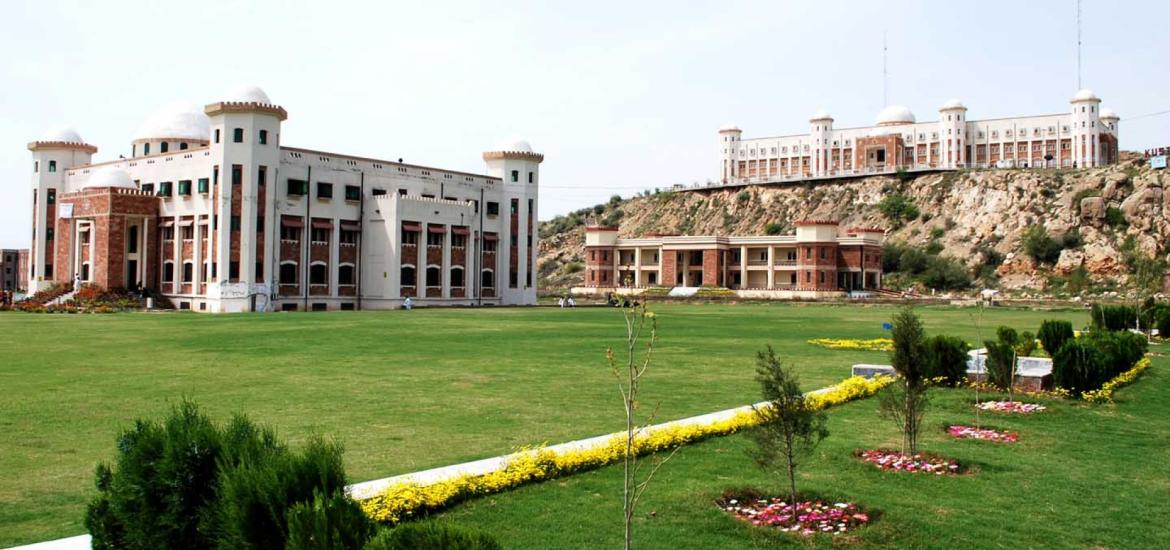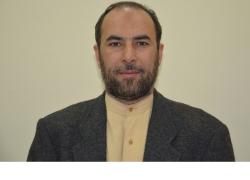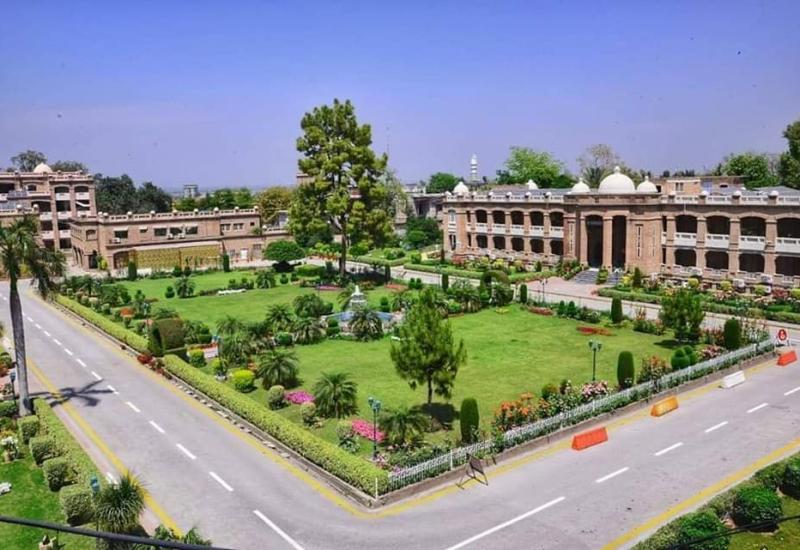HEC budget cuts: Hard times ahead for public sector universities in Pakistan
Instead of enhancing the Higher Education Commission’s budget, which was already slashed by the PTI government over the last 03 years, the recently set up coalition government in Islamabad has proposed quashing it by more than half to Rs. 30 billion for the fiscal year 2022-23, compared to the previous allocation of Rs. 65 billion.
The Provisional Indicative Budgetary (IBC) ceiling and revised estimates for 2021-22 are worth Rs. 65,250 million according to a circular issued by the Finance Division which was widely disseminated through social media, while the budget projections for grants relating to the HEC for the year 2022-23 are around Rs. 30,000 million. The allocation is 45 per cent less even than the current year’s allocation for the year 2021-22.
The HEC has been asked to compile a Budget Order (BOs)/New Items Statements (NISs) in line with the stated Provisional Indicative Revised budget for 2022-23 and submit it to the Finance Division’s Director (Budget Computerization) Budget Wing for entry into the system. However, it is worth mentioning that HEC authorities, on the other hand, sought Rs.100 billion to cover expenses and ensure that research initiatives at public sector universities run smoothly.
This blog post is aimed at discussing the following important areas:
- Implications of the unprecedented budgetary cut on the public sector universities in Pakistan
- Approach of coalition government toward higher education sector in Pakistan
- Reaction from the Vice-Chancellor of Public Sector Universities,
- Response from HEC
- The way out.
Implications of the unprecedented budgetary cut
The deplorable financial health of the public sector universities in Pakistan is one of the major challenges, the academic leaders are confronting for the last couple of years. Indeed, government funding is the premier source of financial support for the state-run universities. Without generous government funding, it would not be possible for the management of public sector universities to run academic as well as the administrative business of the universities. In the backdrop of looming budgetary cut, the public sector universities shall have other matters of serious concern other than focusing on academics and research.
As an offshoot, the public sector universities shall be forced to halt ongoing developmental projects, research activities and hiring of faculty members for the new academic programs. Likewise, the students will bear the brunt of a three to fourfold hike in tuition fees in the days to come. Similarly, they would have no choice apart from firing staff as well as teaching faculty and reducing the pension amounts of retired professors and staffers. The universities will also be forced to close various departments and stop introducing new courses.
In such a situation, the universities’ management shall be left with no choice but to opt for the enhancement of admission as well as examination fee and curtailment of perks and privileges of the employees. These widely contemptible and highly unpopular measures shall yield undue unrest among the students as well as employees.
The approach of the coalition government toward higher education
The PML-N had been quite critical of the PTI government’s decision to reduce the HEC budget. However, after assuming power, they have decided to cut the budget by over 50 per cent. The proposed move to slash further the Higher Education Commission’s funds by 50 per cent in the next fiscal year is a reflection of the approach of the coalition government towards higher education in the country. Needless to say that earlier the HEC had demanded Rs. 100 billion to meet the recurring as well developmental expenditures and to smoothly run the research projects at public sector varsities.
Reaction from the Vice-Chancellor of Public Sector Universities
Faced with plummeting revenues from the students in the backdrop of COVID-19, the cutting in the HEC budget shall further strain the already financially stressed universities. The Vice-Chancellors of public sector universities expressed their dismay over the drastic cut in the higher education budget for the financial year 2022-23, believing that the proposed cut would make it terribly hard for the universities to pay salaries and pensions let alone meeting their overall expenses needed to run a university.
More than one hundred Vice-Chancellors, academic leaders and heads of public sector universities across the country in a recent online meeting were unanimous in lamenting the government’s decision regarding the unprecedented cut in the universities’ budget and urged the government functionaries to urgently look into the matter and enhance the budget as per rationalized demand and save the higher education sector from total chaos and collapse.
These Vice-Chancellors stressed that the Pakistani universities are already under enormous financial pressure because of stagnant funding during the last five years. The Covid-19 pandemic has further exacerbated the financial stress by increasing the cost and reducing fee inflows. They said that the public sector universities would be left with no other choice but to increase the student fee drastically, enhance student intake beyond capacities, adding that these repercussions will lead the sector to disaster and severely dent the quality of learning and graduates.
The Vice-Chancellors shall have to explore other sources of revenue generation such as university-industry linkages and consultancies. Besides, they shall have to persuade the provincial government to shoulder the responsibility to help-out the universities to overcome the prevalent financial crisis
They stressed that if the additional grant of Rs. 15 billion committed by the Government last year is not provided, funding cut is not reversed, and sufficient funds for the year 2022-23 are not allocated as per the demand, the universities will not be able to survive.
Response from the HEC
While talking to the participants of the online meeting, Prof Dr Tariq Banuri, Chairman HEC emphasized that education is as much important as the country’s defense and security. He expressed his apprehension that the proposed budgetary cut, if materialized, would land the higher education sector in a severe crisis. He stressed that the government need to understand the implications of the unprecedented reduction in higher education funding.
Dr. Shaista Sohail, Executive Director HEC underlined the challenges of the higher education sector, especially in the face of the proposed budgetary cut. She regretted that the recurring grant allocated to HEC since 2017-18 has almost been stagnant and its share as a percentage of GDP kept on declining to the level of 0.14% in the current fiscal year. She highlighted that the higher education sector has witnessed tremendous growth during the last five years through the establishment of several new universities by the federal as well as provincial governments, while the students’ enrolment has also remarkably increased.
The HEC officials are of the opinion that the previous governments had already slashed the HEC budget due to which universities across the country were facing a severe financial crunch. Hence, a further cut in the budget will monetarily paralyze the higher education institutions in the country as the majority of universities do not have the capacity to generate funding for recurring as well as developmental expenditures.
In such a scenario the commission would be unable to provide recurring as well as developmental grants to all the state-run universities from the proposed provisional indicative budgetary ceiling and estimated budget for 2022-23. It is not sufficient to run even the affairs of the Commission and at the same time keep research projects going at the universities. However, the commission will have the only option to entertain the universities being operated by the federal government, leaving aside the universities that come under the jurisdiction of the provincial governments.
The way out
Obviously, the government has to reverse the decision and provide sufficient funds as per the demand of the HEC and respective universities for the financial year 2022-2023. However, the Vice-Chancellors shall have to explore other sources of revenue generation such as university-industry linkages and consultancies. Besides, the Vice-Chancellors shall have to persuade the provincial government to shoulder the responsibility to help-out the universities to overcome the prevalent financial crisis, otherwise, the situation will further deteriorate to the extent in the coming days that the universities shall not be able to pay even salaries to its employees let alone realizing its strategic vision and playing its due role of national economic development in the knowledge-based economy.
The Vice-Chancellors shall have to ensure that the core principles of accountability, fair play and transparency are taken into consideration at all stages of financial management while making and implementing key decisions. Getting full value for money with a robust internal control system and spending money for the purpose and in the manner prescribed by the universities’ Financial Rules need to be taken into account.


















